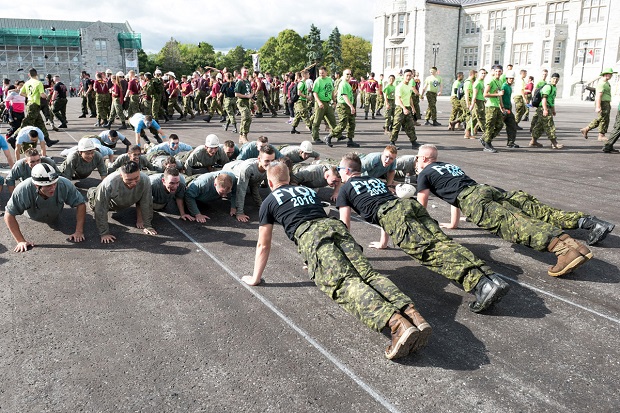A century-old military college that grooms the country’s future officers now faces an intensive review amid concerns over suspected suicides and allegations of sexual misconduct in the campus.
Vice Admiral Mark Noman, the Canadian Armed Force’s second-highest-ranking commander, today ordered the deployment of a Special Staff Assistant Visit (SSAV) team to the Royal Military College of Canada (RMCC) in Kingston, Ont., to conduct a full and comprehensive assess the “climate, training, environment, culture, and program, construct” at the RMCC.
“Over the past several months, the senior leadership of the CAF has grown concerned about the learning environment being provided to OCdts at RMCC,” Norman said in a letter sent on Nov. 1 to the parents of cadets of the college.
In an interview with Vanguard, the vice chief of staff said he wanted to make it clear that the review was not an investigation into sexual misconduct in the college.
“This is not investigating sexual misconduct,” he pointed out. “Yes that has been one of the contributors but we are not exclusively focused on that one dimension. This is an investigation into a broader malaise.”
SSAV investigations are a normal occurrence in military units and facilities. They are called to look into a broad range of things that could include book keeping irregularities to the overall climate of a command, Norman explained.
However, over the past two years, there have been several reports of sexual misconduct at the college. Court martial documents show that an officer cadet received a severe reprimand and a fine of $2,000 in May 2015 after pleading guilty to a charge of assaulting a fellow cadet without her consent in 2013.
RELATED CONTENT
Sexual offence response team launched
Operation Honour a ‘good start’ but ‘no quick fixes’: CDS
The military is also investigating the sudden deaths between May and August of three RMCC cadets. The cadets were identified as Harrison Kelertas, 22, Brett Cameron, 20, and Mathew Sullivan, 19.
Established in 1876, the RMCC is the only federal institution in Canada with degree-granting powers. Its 41-hectare peninsula in Kingston houses an administrative staff of 200, 1,1600 full-time and 900 part-time undergraduates and 300 full-time postgraduates.
The mission of the RMCC is to educate train and develop cadet officers for leadership careers in the Canadian Armed Forces.
The eight-member team SSAV team that will conduct the review of the college is made of former and current military officers. The review will also focus on the mental state of the college’s undergraduate and postgraduate population.
In his letter to the parents, the vice chief of staff said the SSAV team will examine the following areas:
- Stressors to cadets – What are the significant stressors affecting RMCC cadets? Can cadets identify and seek help to deal with stress without being viewed as weak?
- Support for cadets – What support mechanisms are available to cadets for their mental health support, physical fitness, and counselling? How are cadets being made aware of these?
- Morale- What is the state of moral of RMCC cadets, the military wing and the academic wing? What are the factors leading to this state of morale?
- Command of RMCC – Does the current command structure of the college allow it to carry out its mission?
The military itself has been rocked by sexual misconduct controversies recently.
Earlier this year, Gen. Jonathan Vance, chief of defence staff, launched Operation Honour.
Op Honour is a campaign to clean the ranks of the CAF amid widespread concerns over what has been described as “endemic” sexual misconduct within the military.
A 2014 investigation by retired Supreme Court justice Marie Deschamp found a “sexualized culture” in the CAF. Deschamp said female members of the armed forces were subjected to abuse ranging from harassment and sexual jokes to outright rape.
As part of Op Honour, an 18-member Sexual Offence Response Team was created to support the military’s efforts to investigate instances of sexual misconduct and to protect and support victims of sexually-based offences.
“Given the critical role RMCC holds in preparing future leaders of the CAF, we must ensure it remains an elite institution that is an educator of choice for university-bound Canadians,” said Norman.


Comments are closed.